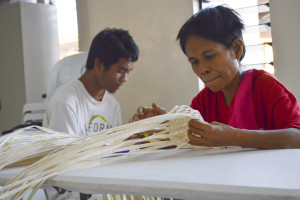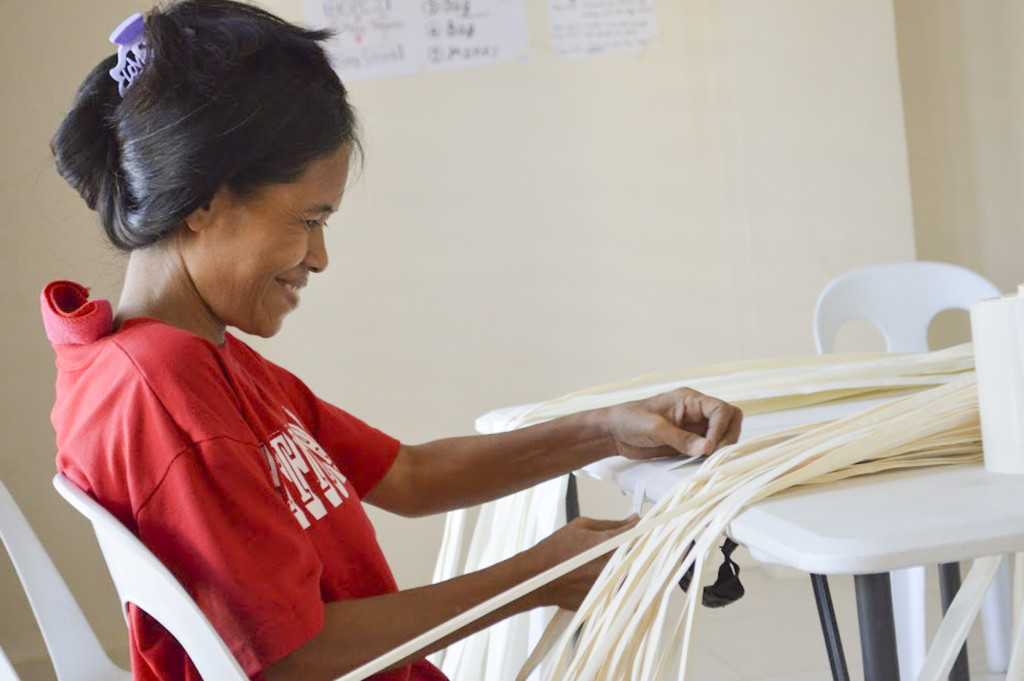For this month I’d like to write about a new project for Lorega in the Philippines, which I introduced several months ago. There is an NPOrun by Keio University students, called HOPE, which supports children in Lorega on the island of Cebu. It’s an old Japanese graveyard where squatters now live, including many children without official registration. They are therefore not able to receive proper medical care or education, and often become the victims of drugs and child prostitution. It’s not easy for the children of Lorega to leave the area and so they don’t have any objective perspective of themselves. We at The Darkroom launched a project where we gave disposable cameras to those children so they could photograph their everyday lives, thus providing an unfiltered perspective for us. We then displayed those photographs at JICA to convey the conditions of their lives to Japan.
 The environment of Lorega is quite horrific, but kids still play energetically as kids do. Their playful movement, stirring up the otherwise stagnant air, is the sole comforting note. Walking through town, we noticed a room with lots of double-sided release paper hanging down. Our curiosity piqued, we asked what it was for and someone explained that they use the paper for weaving bags and purses. Since there weren’t any finished pieces, we really had no idea what they might look like, but we grasped that these were uneducated mothers desperately trying to gain some footing. The week after we returned to Japan, news reported that a fire started in Lorega and sadly engulfed the area. The government launched new town planning, but the situation of the people living there will differ little from before.
The environment of Lorega is quite horrific, but kids still play energetically as kids do. Their playful movement, stirring up the otherwise stagnant air, is the sole comforting note. Walking through town, we noticed a room with lots of double-sided release paper hanging down. Our curiosity piqued, we asked what it was for and someone explained that they use the paper for weaving bags and purses. Since there weren’t any finished pieces, we really had no idea what they might look like, but we grasped that these were uneducated mothers desperately trying to gain some footing. The week after we returned to Japan, news reported that a fire started in Lorega and sadly engulfed the area. The government launched new town planning, but the situation of the people living there will differ little from before.
A member of the HOPE NPO returned from Lorega recently and brought back some of the bags made from release paper. I was honestly shocked by the high quality. He wondered how HOPE might realistically sell the bags, and at present is trying to duplicate the design through trial and error. “Providing support isn’t just giving food,” someone said. “Real support is teaching somebody how to make food.” HOPE is now trying to provide support by introducing goods that they can sell.

The HOPE project is about more than just bags made from paper. It seeks to provide health checks for children, guidance on better eating habits, educational support and more. The members divide the work and pursue these separate projects. Most of the volunteers are university students, both those that are graduating and new members, so each year the teams are a little different. They’ve noted that the first priority is not shifting the focus too much year to year.
We are of course supporting HOPE as a means of supporting the children of Lorega, but personally, it’s also for the students who will one day fully engage in our society with greater individual strength. I wonder what they will dream of doing for the world and how they will achieve it.


